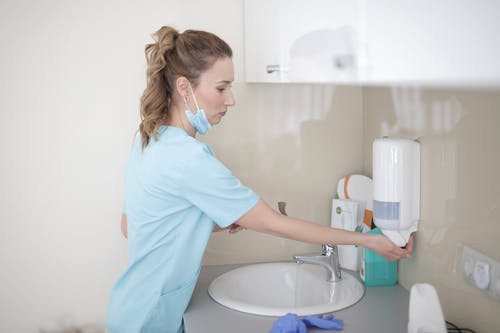Public health practitioners involved in Covid care are experiencing compromised mental health.
A study, which was published in the Centers for Disease Control and Prevention’s (CDC) Morbidity and Mortality Weekly Report, found that Covid-19 has significantly affected the mental well-being of public health care providers. Roughly “a third of the 26,000 health care workers” surveyed, of which “92.6% respondents reported working directly on COVID-19 response activities,” suffered from “symptoms of depression in the last two weeks.” Moreover “3 in 10 reported suffering from anxiety, and more than a third” have “experienced symptoms of post-traumatic stress disorder (PTSD).”
“Eight percent, or about one in twelve” indicated “they experienced suicidal ideation” and all of the mental health conditions were “more prevalent among public health workers under the age of 29, among those who worked more than 60 hours per week, and among those who reported they were unable to take time off work.”

Those who’ve experienced the most significant changes to mental health reported spending their time at work in COVID-19 wards. Among public health workers who spent the majority of their time responding directly to issues related to the Covid-19 pandemic, almost “50% reported symptoms of PTSD within the last two weeks alone and more than a third reported signs of depression and anxiety.”
The CDC researchers wrote, “Stress-inducing events like the coronavirus pandemic can undermine the public health workforce at exactly the time when they are most essential.” The report found nearly three-quarters of all public health workers felt overwhelmed by work, and there has been notable increases in absenteeism, higher rates of turnover, lower productivity levels, and lower morale, which could influence the effectiveness of public health organizations during emergencies. Nearly “20% reported” that they’ve been unable to take time off. “Up to 25% “didn’t’ even know whether their places of employment offered an employee assistance program (EAP) or how to access this.
Based on the information gathered, researchers found that “expanding staffing size and implementing flexible schedules might reduce the need for long work hours; encouraging workers to take regular breaks and time off could help avoid overwork and reduce the risk for adverse mental health outcomes. In addition, implementing, evaluating, and promoting use of employee assistance programs could improve employee resiliency and coping.”
Public health workers often experience compassion fatigue that can also be amplified by vicarious trauma when they are off duty. This is true even on just a day-to-day basis without complications of treating a worldwide pandemic. “Also known as secondary trauma, vicarious trauma can result from exposure to images, stories, or accounts that someone does not directly experience” explained Françoise Mathieu, MEd, CCC, RP, a compassion fatigue specialist and executive director of TEND. “What I can tell you as a specialist is that trauma is trauma. Our brain doesn’t necessarily know the difference.”
The CDC indicates that addressing work practices that contribute to stress and trauma is critical to managing workers’ adverse mental health status during emergency responses. The health of these workers is essential to maintaining the health of those who need their help. If helpers are unwell, they are unable to assist others.
Sources:
Half of public health workers experiencing mental health strain: study


Join the conversation!